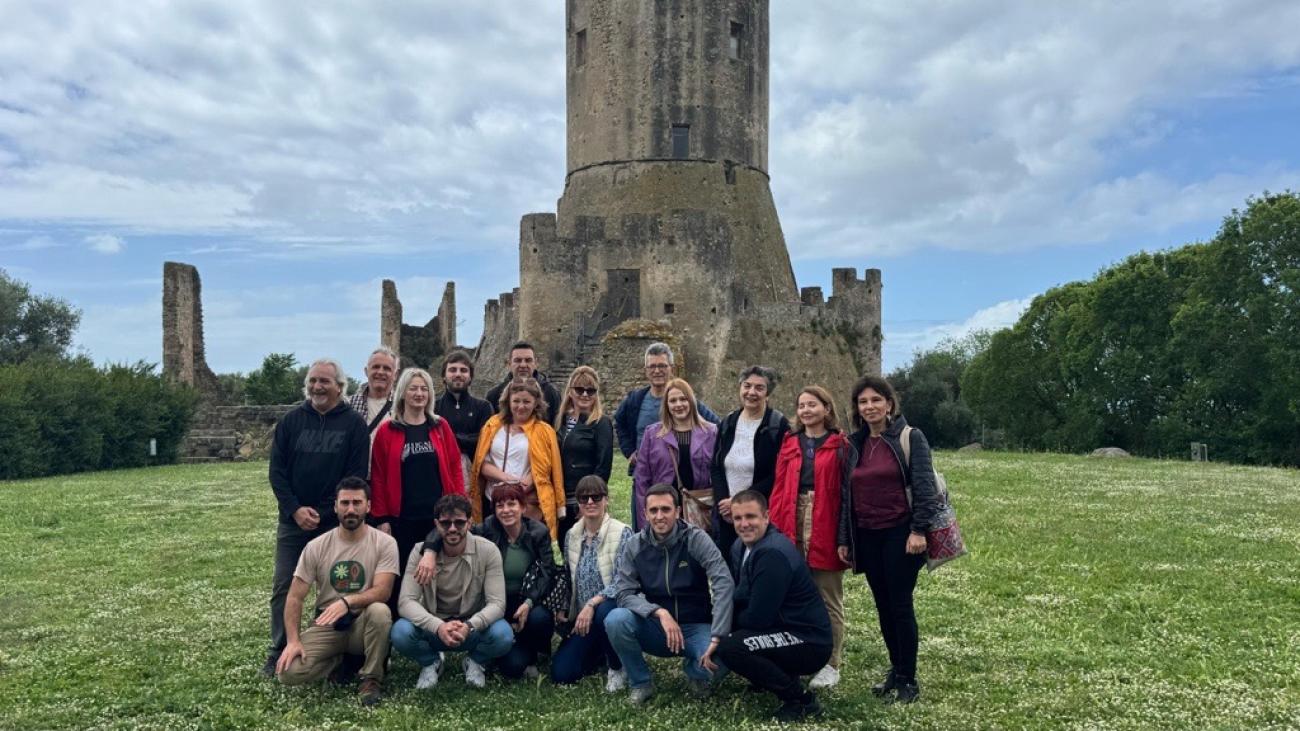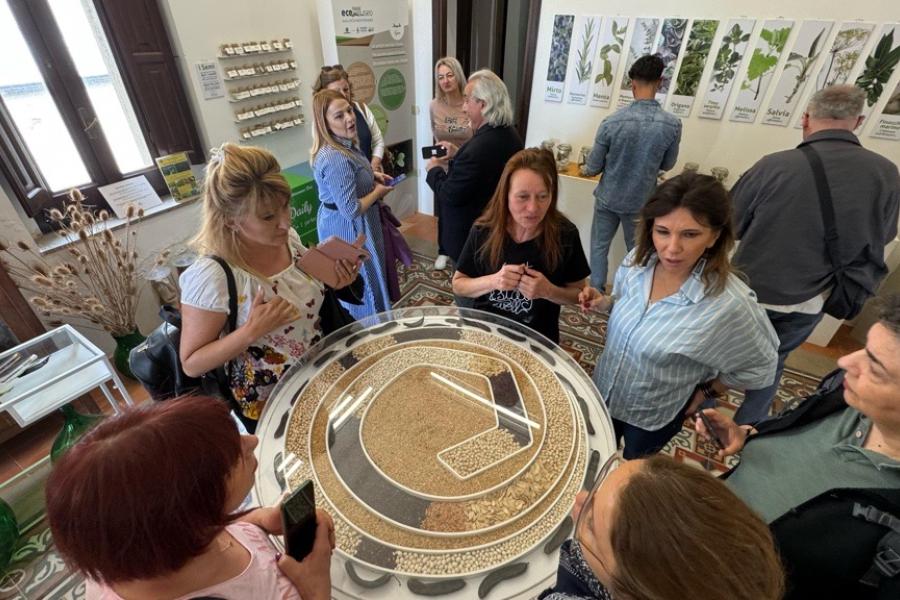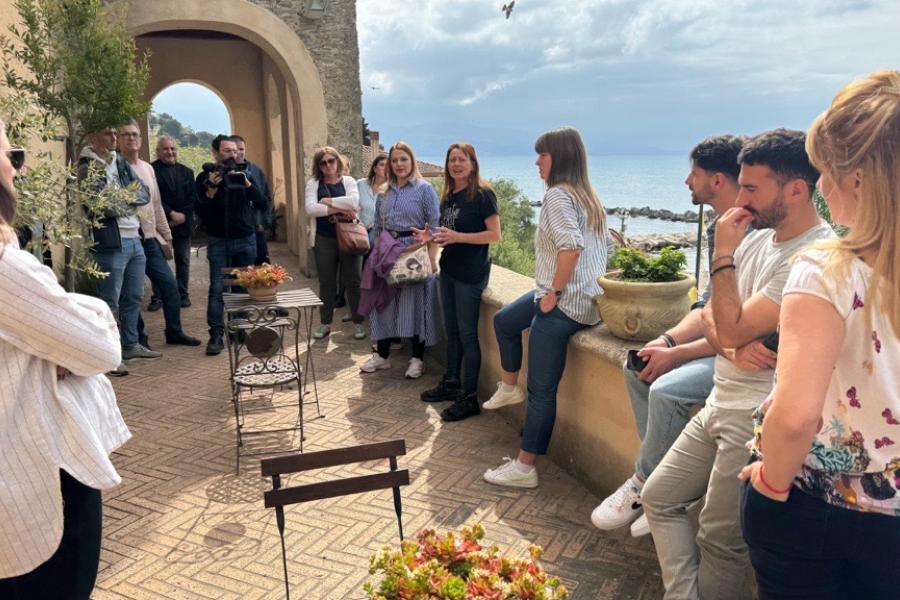From Kolubara to Campania – Learning for a sustainable future

Kolubara Bio-district visited Cilento, Italy, to explore sustainable farming models—laying the groundwork for Serbia’s first bio-district.
Kolubara, a district in Serbia known for its natural beauty, cultural and historical heritage and a vast tourist offer, could soon become a leader in the transformation of domestic agriculture. Within the one-year project "From Seed to Sustainability – Food Systems 4 All", which is jointly implemented by the UN agencies in Serbia in cooperation with the National Association for Organic Production Serbia Organica, representatives of the Kolubara Bio-district visited the Campania region of Italy, where the first bio-district in the world was established, which has been functioning for years as a model of successful and sustainable agriculture. In the period from 21 to 25 May, producers from the Kolubara Bio-district, together with representatives of UN agencies and Serbia Organica, were guests of the Cilento Bio-district.
This study visit is part of a broader initiative to develop the bio-district model in Serbia, with the aim of achieving the Sustainable Development Goals (SDGs), particularly those related to ending hunger, gender equality, responsible consumption, and the preservation of life on land.

Knowledge exchange – From region to region
One of the participants of the study visit to Italy was Ivana Sretenović from the Sretenović Ranch, a family farm in Kolubara that combines organic production and rural tourism. On her husband’s ancestral land, they have developed a nature retreat with apartments, an organic chokeberry plantation and an organic plum plantation. A forest museum has also been established on the Sretenović Ranch.
"We love and respect nature. We love healthy food. We take care to ensure our environment is healthy, and we want people around us to be aware of ecology, biodiversity, and everything we do and stand for. So, the bio-district concept naturally came to us, connecting us with people who share the same life philosophy,” explains Ivana Sretenović.
During her visit to Italy, she was inspired by how closely producers collaborate with the local community and the fact that most schools and kindergartens use ingredients produced within the Bio-district of Cilento in their canteens.
“They have closed the loop: nature, a healthy environment, healthy food, biodiversity, and people. They have been operating for 20 years, and we are about to complete our first. We have already achieved a lot. The most important thing for us is that we are a very cohesive group that works well together, makes decisions, and acts,” says Ivana Sretenović.

Kolubara as a pioneer bio-district in Serbia
As Ivana Simić from Serbia Organica explains, Kolubara was chosen as the pilot area due to the presence of a strong local initiative and its diverse potential: “We have stakeholders who are committed to developing the bio-district, such as certified organic producers, those using organic and agroecological methods, rural tourism operators, as well as schools, institutions, and local associations that are open to cooperation.”
When asked about the biggest challenge in transferring the Italian model to the local context, Ivana Simić emphasizes: “Patience is needed, along with gradually building trust among those actors who have not yet actively engaged. People need to believe that this model is not just another project, but a way for the community to become stronger and more resilient, and for their area to further develop and gain recognition and value, both at the national level and abroad.”
FAO and sustainable transformation of food systems
The Food and Agriculture Organization of the United Nations (FAO), which is leading the implementation of this project in Serbia, sees bio-districts as one of the key tools for the successful transformation of food systems.
"Through this knowledge exchange, our partners from Kolubara have confirmed that they are on the right path and that sustainable models do not have to remain theory, but that they can work in practice," says Aleksandar Mentov, FAO National Program Coordinator in Serbia.
He adds that UN agencies in Serbia will continue to provide technical and advisory support in the coming months, with the goal of making the Kolubara Bio-district an example that will inspire other regions in the country and contribute to the sustainable transformation of food systems.
Bio-districts and their future in Serbia
Bio-districts are geographical areas based on the principles and model of organic agriculture, in which farmers, citizens, tourism and hospitality service providers, educational and scientific institutions, public institutions and associations establish cooperation with the aim of developing sustainable local food systems, improving the management of local resources, as well as promoting the economic and socio-cultural development of the area.
In the coming period, Kolubara could become a model example of how local production, shared vision and international cooperation can be combined into a sustainable and functional system – for the benefit of people, nature and future generations.
"From Seed to Sustainability – Food Systems 4 All"
“From Seed to Sustainability: Food Systems 4 All” is a one-year initiative funded by the Joint SDG Fund, with support from the European Union and the governments of Belgium, Denmark, Germany, Ireland, Italy, Luxembourg, Monaco, the Netherlands, Norway, Poland, Portugal, the Republic of Korea, Saudi Arabia, Spain, Sweden, and Switzerland. This initiative in Serbia is led by the UN Resident Coordinator’s office and implemented by the Food and Agriculture Organization of the United Nations (FAO) together with the UN Environment Programme (UNEP) and the UN Entity for Gender Equality and the Empowerment of Women (UN Women), with support from the UN Economic Commission for Europe (UNECE) and in collaboration with the Ministry of Agriculture, Forestry and Water Management of Serbia and other local partners.








